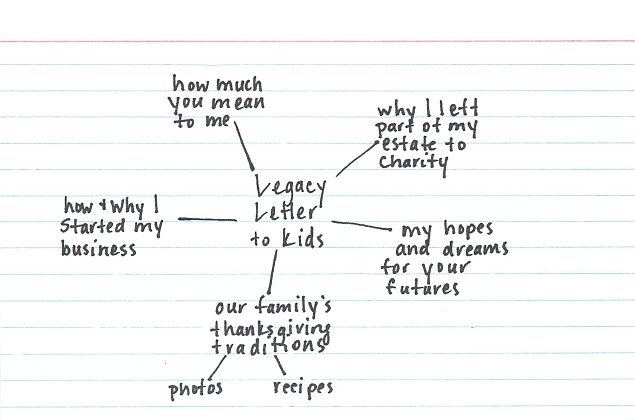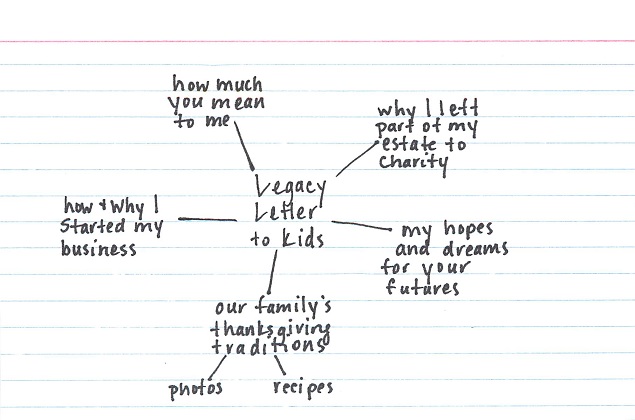Legacy Letters And Ethical Wills


Across history and cultures, people have been writing letters to descendants to share wisdom, preserve traditions, record family history, explain, and inspire. These letters have been called different things, but today they're most commonly known as ethical wills or legacy letters. And they still have an important role to play in today's estate plans. In addition to the valuable purposes these letters have always served, they can also help diffuse conflicts over assets and increase heirs’ satisfaction with their inheritances.
Legal documents like your will, living trust, and beneficiary designations are legal documents. For the most part, they pass on your stuff. Legacy letters are not legal documents. They pass on your values.
There are no "rules" for writing legacy letters. The contents and form of your letter are entirely up to you. You can tell you kids what you home they'll accomplish, or tell stories about your grandfather. Make a video montage, or take out a pen and paper. And you can write more than one letter.
The Legacy Letter Writing Process
It can be tough to get started on your legacy letter. Here's how I recommend going about it:- Brainstorm.
Think about who you might want to address. Here are some ideas:
- Spouse
- Kids (or kids you may have in the future)
- Grandchildren
- Parents
- Siblings
- Other family members (nieces, nephews, cousins, grandparents)
- Friends
- Anyone to whom you feel indebted
- Anyone for whom you care
- People on whom you are placing responsibilities (the guardians of your children, your health care agent, the person who will run your business after you).
- Hopes, dreams, and goals for the person you're writing to
- Your thoughts about and feelings toward those you're addressing
- Explanations of things in (and not in) your legal documents
- Descriptions of family traditions
- Stories about ancestors
- Stories about family heirlooms or other property
- Personal history (a short autobiography, descriptions of significant events or people in your life, good and/or bad memories, defining experiences)
- Your guiding principles and values
- Letter (handwritten or typed)
- Series of Letters
- Scrapbook, annotated photo album
- Video (interview, conversation, montage)
- Audio
- Combination of formats
-
Write. It's a process and will take time.
-
Update. Add pages to your scrapbook, redo your video, or write a second letter.
